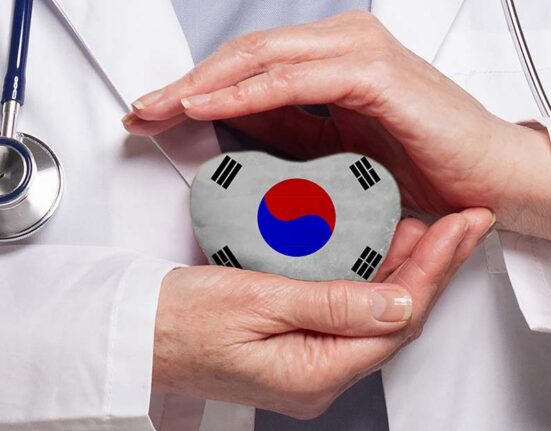Pancreatic cancer in Singapore is the tenth most common type of cancer in males for the period 2018 – 2022, according to the Singapore Cancer Registry. It is the 9th most common cancers in women for the same period. For both sexes, it is responsible for a disproportionate number of cancer deaths. This article looks at the diagnosis, and the options for pancreatic cancer treatment in Singapore.
Pancreatic Cancer Diagnosis
If the doctor suspects pancreatic cancer, he will take the patient’s medical history followed by a physical examination. Pancreatic cancer is commonly diagnosed using a combination of blood test and radiological scans. The diagnostic tests will help doctors to determine the stage of the cancer and assist them in customising a suitable treatment plan.
Diagnostic tests for pancreatic cancer may include one or more of the following:
Blood Tests
Sometimes known as blood chemistry studies, blood tests check for substances in the blood which may indicate signs of disease – such as elevated bilirubin levels.
Tumour Marker Tests
Analysis of a sample of blood, urine or tissue can reveal substances produced by cancerous cells. Elevated levels of these substances, known as tumour markers, can sometimes assist to identify specific types of cancer.
Medical Imaging Tests
Magnetic Resonance Imaging (MRI)
An MRI uses magnetic rays and is a decent imaging modality for organs such as the liver or pancreas.
Computerized Tomography (CT) Scan
In a CT scan, a computer linked to an X-ray machine takes images from different angles.
Positron Emission Tomography (PET) Scan
In a PET scan, a small amount of radioactive glucose is injected into the vein. The scan will indicate where the glucose is being consumed, indicating the location of the tumour.
Ultrasound
An endoscopic ultrasound (EUS) uses an ultrasound device to make images of your pancreas from inside your abdomen.
Endoscopic Retrograde Cholangiopancreatography (ERCP)
This procedure x-rays the bile ducts which can become narrowed or blocked due to pancreatic cancer. It is performed with the help of a dye and an endoscope.
Percutaneous Transhepatic Cholangiography (PTC)
In a PTC, a dye is inserted into the liver or bile ducts and then x-rayed to reveal any blockage. A stent may be used to allow drainage of bile. A PTC is usually performed if an ERCP is not possible.
Learn More: Medical Imaging >>
Biopsy
A biopsy is a procedure to remove a small sample of tissue for examination under a microscope.
Pancreatic Cancer Treatment In Singapore
Treatment of pancreatic cancer involves two main goals: to destroy cancerous cells and to prevent the cancer from spreading. The most suitable treatment option will depend on the stage of the cancer.
The main treatment options include:
Surgery
Surgical treatment of pancreatic cancer involves surgical removal of portions, or the whole of the pancreas. While this removes the primary tumour, it will not eliminate cancer that has spread to other areas in the body. Therefore, surgery may not be suitable for advanced-stage pancreatic cancer. Only about 20% of patients diagnosed with pancreatic cancer are suitable for surgical treatment.
The procedure to remove tumours in the pancreatic head is called the Whipple procedure (pancreaticoduodenectomy). It is a difficult operation that removes not only the head of the pancreas, but also part of the small intestine, the gallbladder, part of the bile duct and nearby lymph nodes. Part of the stomach and of the colon may also be removed. The remaining parts of the pancreas, stomach and intestines are then reconnected to allow food digestion. Distal pancreatectomy is a procedure to remove the body and tail of the pancreas for tumours located instead in those areas. The spleen may also need to be removed. Certain cases may require the removal of the entire pancreas (total pancreatectomy). Patients with the entire pancreas removed will need insulin and enzyme replacement but can otherwise lead normal lives.
Radiation Therapy
X-rays and other high-energy beams are utilised to destroy cancer cells, the most common of which for treating pancreatic cancer is external-beam radiation therapy. The various ways that radiation therapy can be administered include “traditional” or “conventional” radiation therapy, Stereotactic body radiation therapy (SBRT), and proton beam therapy (which uses protons rather than x-rays).
Chemotherapy
Anticancer drugs are used to destroy cancer cells by preventing their growth and multiplication. Chemotherapy treatment consists of a certain number of cycles usually with a rest period between cycles. Patient may either be given a single drug at a time, or may be given a combination of different drugs.
Targeted Therapy
This therapy is used to prevent the growth and the spread of cancer cells by targeting the cancer genes, proteins, or the tissues that enable the growth of the cancer. This approach limits damage to healthy cells.
Not all tumours have the same targets. To find the most effective treatment, the doctor may run tests to identify the genes, proteins, and other factors in the patient’s tumour. This helps the doctor better match each patient with the most effective treatment whenever possible.
Immunotherapy
Immunotherapy triggers the body’s immune system to fight the cancer. This is also called biologic therapy.
Approaches To Treatment Of Pancreatic Cancer
For the treatment of pancreatic cancer, the doctor might suggest combining multiple treatment options for optimal outcomes. For example, chemotherapy might be performed in addition to surgery.
For advanced-stage pancreatic cancer however, treatment options might focus more on alleviating pain and keeping symptoms as manageable as possible.
Learn More: Pancreatic Cancer Risk Factors And Symptoms >>
Contact Us For An Appointment With A Doctor On Your Pancreatic Health Concerns
If you are looking to consult a doctor on your pancreatic health concerns, we can help with an appointment with out healthcare partners. Contact us via the button below.
Protect against cancer, cardiovascular disease, and other chronic diseases with regular health screening. Compare and shop for health screenings from Singapore and regional healthcare providers at a single convenient platform - shop.health365.sg
This article is informative only and is not intended to be a substitute for professional medical advice, diagnosis, or treatment, and should never be relied upon for specific medical advice.
























































